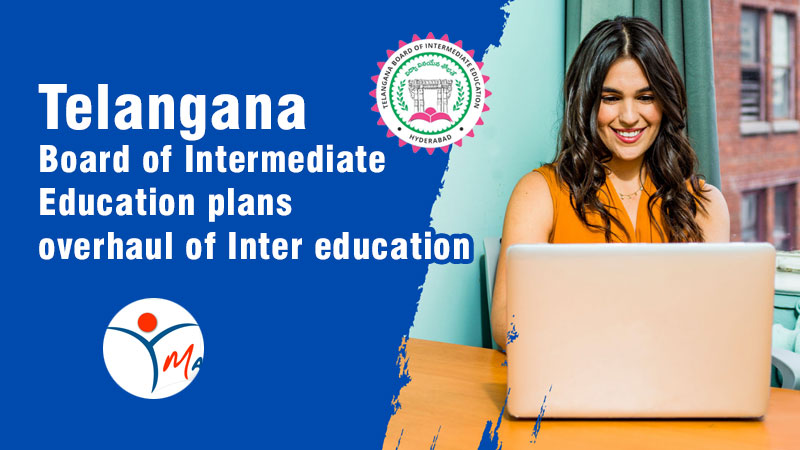Under the new plan, the syllabi for both first-year and second-year students will be revised to align with the NCERT framework, similar to the model already adopted by 13 other education boards across the country.
The Telangana Board of Intermediate Education (TGBIE) has announced significant reforms to the Intermediate education system, effective from the academic year 2026–27. The changes include updating the curriculum to align with NCERT standards, introducing a new subject group, and revising both the examination structure and the evaluation process.
Contents
Telangana Inter Education Reform 2026: TGBIE Announces NCERT-Based Syllabus
Under the revised plan, the syllabi for both 1st and 2nd year students will be updated to align with the NCERT framework, similar to the approach already adopted by 13 education boards across the country. Additionally, a new subject group — Accounts, Economics, Commerce (AEC) — will be introduced.
According to TGBIE officials, committees consisting of professors from junior and degree colleges, along with Class 10 school teachers, will review the existing syllabus and suggest necessary changes. After finalizing the revised content, it will be prepared and submitted to the state government for approval. The entire syllabus revision process is expected to take around 35–40 days and is likely to be completed by December of this year.
TGBIE Secretary S. Krishna Aditya said on Saturday:
The Board of Intermediate Education (BIE) will introduce major academic reforms from the next academic year. The science syllabus — including Biology, Zoology, Physics, Mathematics, and Chemistry — has not been updated for the last 12 years. Similarly, Humanities subjects were last revised in 2019–20, and language subjects such as English, Urdu, and Sanskrit have not been revised for six years. The new curriculum will now be redesigned in alignment with NCERT standards.
Inter books to have QR codes linking online resources
TGBIE Secretary S. Krishna Aditya stated that the revised syllabus is designed to encourage activity-based learning, especially in the Humanities and Commerce streams. It will also incorporate elements of local culture and traditions. Additionally, with support from the State Council of Educational Research and Training (SCERT), the Board will introduce QR codes in Intermediate textbooks, enabling students to access online learning resources directly.
Another major reform planned for the upcoming academic year is the introduction of practical examinations for first-year students. According to a senior TGBIE official, this step will help students gain hands-on experience in laboratory work before they progress to the second year.
To support this initiative, the Board has introduced the Telangana – Science, Technology, Engineering Facilities Map (T-STEM). This program covers 22 vocational and general courses across six sectors. Its primary goal is to facilitate the sharing of laboratory and equipment resources among junior colleges, degree colleges, polytechnic institutions, and universities.
Telangana Board of Intermediate Education Plans Major Overhaul from 2026–27
Starting next year, the evaluation system will follow an 80:20 pattern, where 80% of the marks will be based on written examinations and the remaining 20% will be allotted for internal assessments. Until now, internal marks were awarded only for the English subject.
Meanwhile, the Government Junior Lecturers Association has strongly opposed the proposal to include internal marks, describing it as a ‘self-destructive move’ that would harm both students and the intermediate education system.
New beginnings
- Introduction of Accounts, Economics, Commerce (AEC) group
- 80:20 pattern for assessment – 80% written exams, 20% internal assessments; internal marks previously only in English
- First-year students to have practical exams; T-STEM initiative to enable sharing of lab and equipment resources across colleges and universities



